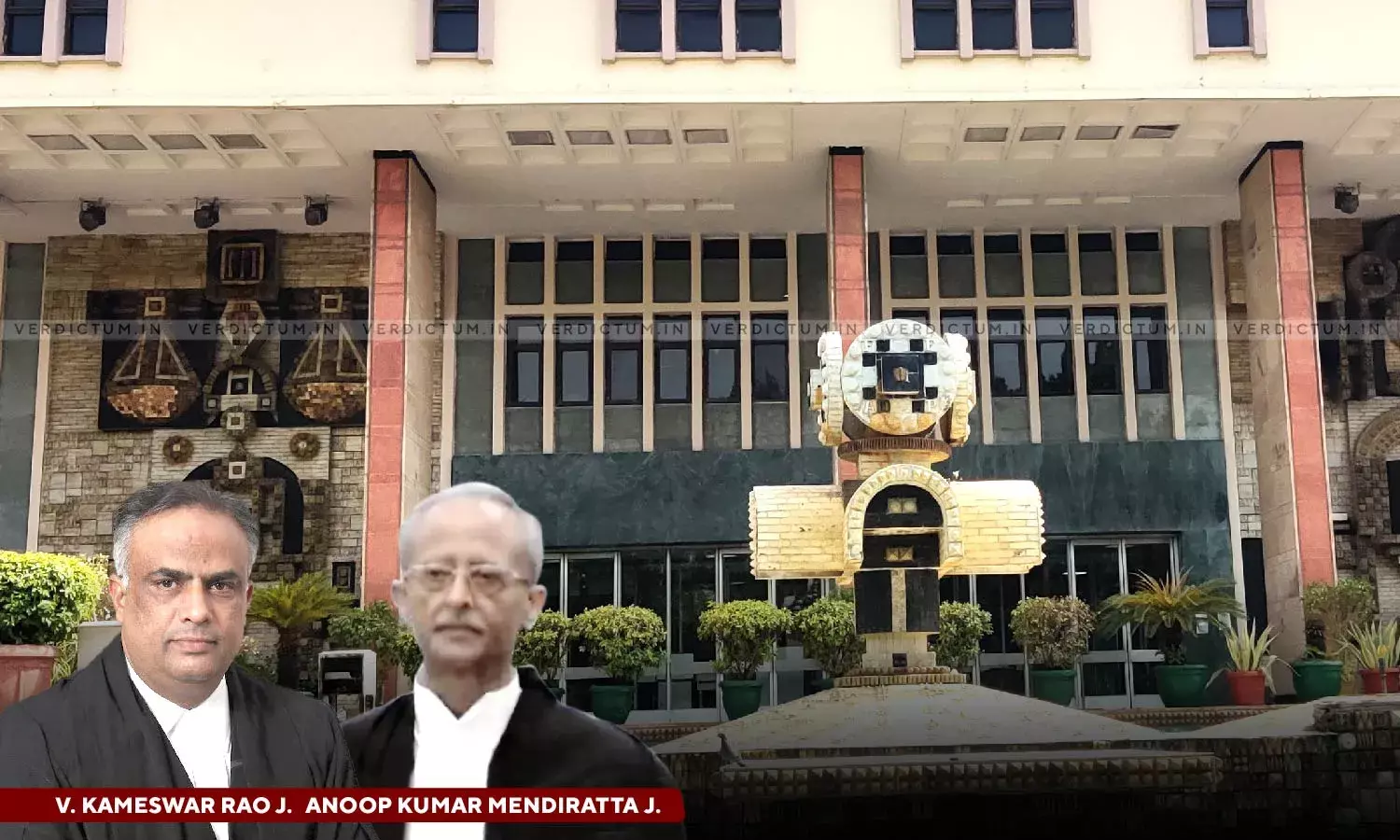Rights, Privileges, Obligations & Liabilities Survive Even When Ordinance Ceases To Operate: Delhi HC On RFCTLARR (Amendment) Second Ordinance 2015
The Delhi High Court has dismissed petitions challenging land acquisition proceedings and contending that the acquisition proceedings couldn't continue due to the lapse of the Right to Fair Compensation and Transparency in Land Acquisition, Rehabilitation and Resettlement (RFCTLARR) (Amendment) Second Ordinance in 2015.
Holding that the rights, privileges, obligations and liabilities survive or endure even once the Ordinance has ceased to operate, the Bench of Justice V Kameswar Rao and Justice Anoop Kumar Mendiratta observed that, "the notification under Section 11 in the present case has been followed by subsequent consequential proceedings including issuance of declaration under Section 19 of the Act of 2013 after duly considering the objections raised by the petitioners. The entire project was given a final shape including submission of cheque of Rs.6,69,12,500/- towards cost of land by DJB for construction of WWTP. Nothing remained in pipeline once the notification under Section 11 of the Act of 2013 invoking Section 10A(1)(e) of the Ordinance was issued. In the facts and circumstances, we are unable to agree with the submissions of learned counsel for the petitioners that the rights, privileges, obligations and liabilities do not survive or endure, once the Ordinance has ceased to operate."
Senior Counsel Dhruv Mehta, along with others, appeared for the petitioners. Senior Counsel Manish Vashisht, along with others, appeared for the respondents.
The case involved challenges to land acquisition proceedings initiated under the Right to Fair Compensation and Transparency in Land Acquisition, Rehabilitation and Resettlement Act, 2013.
The National Green Tribunal's directions in 2015 prompted the acquisition of land for Waste Water Treatment Plants along the Yamuna River. Two writ petitions, one regarding land in Tajpur Khurd village and another in Tikri Kalan village, sought to quash acquisition notifications issued in 2015.
The RFCTLARR Act, 2013, introduced rehabilitation and resettlement measures for project-affected persons. Amendments in 2014 and 2015 empowered the government to exempt certain projects from specific provisions. The petitioners contended that the acquisition proceedings couldn't continue due to the lapse of the RFCTLARR (Amendment) Second Ordinance in 2015.
The Court also observed that, "the facts and circumstances in the present case, clearly spell out the need of public interest for setting up of WWTP in view of directions of NGT. The declaration of the Appropriate Government that acquisition is proposed for public purpose, is conclusive and is not open to challenge since the petitioners have not been able to establish that the proposed acquisition is sought to be made for some collateral purpose.Any delay in execution of project would have been detrimental to interest of public and also delayed the interconnectivity of WWTPs, for which purpose the land was notified to be acquired in different villages and similar notifications were issued."
Subsequently, the petitions were dismissed.
Cause Title: Yudhvir Singh & Anr. vs Govt. of NCT of Delhi & Ors.
Click here to read/download Judgment




